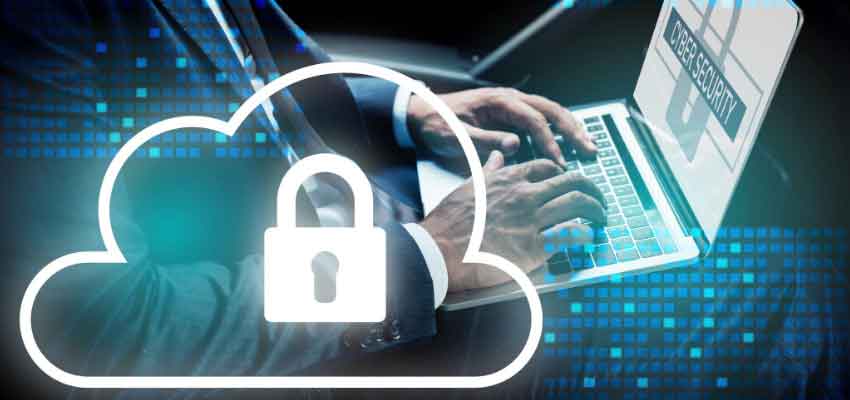Some important ways to secure a computer Network
Introduction
Computer network security defects seem to be in the news nowadays, and they’re costing the organizations that fall prey millions of dollars. IBM reports that the average cost per incident in 2020 was $8.64 million for U.S companies, more than twice as much as the global average. The healthcare industry remains the most vulnerable and experiences the highest average losses.
The facts surrounding cybersecurity can be downright scary, and protecting your system is critical. Yet, it’s hard to know how to secure a network, especially for small- and medium-sized organizations that don’t have a full-time IT staff to oversee system maintenance.
Fortunately, there are several computer network security best practices that business owners can implement today to secure their data and build more impenetrable protection against hackers and viruses.
So there are some ways to protect a computer Network
- Update your password regularly
- Use the firewall and monitor its activity
- Keep your antivirus software up to date
- Using a Virtual Private Network (VPN)
- Look for a professional
- Filter and delete spam emails
- Shut down computers when you are not using
- Encrypt your file
REGULARLY UPDATE YOUR PASSWORDS
When assigning passwords first begin by avoiding all default passwords. Forget using obvious phrases such as “password”, dates of births, “12345” and many other obvious ones. Encourage all your employees to use strong passwords for added security. They can combine both uppercase and lowercase letters for added security.
Emphasize the importance of using strong passwords for your employees, because hackers are getting smarter and are always figuring out simple passwords. Change your passwords quarterly, but you can also opt to change them as often as you can.
You could also adopt the two-step verification feature when connecting to your company’s network. This will enable anyone who wants to successfully access the system to enter not only the username and password but also include a code they receive through their text or other means.
For added protection use an encrypted protocol for passwords on the router for your company network. The best one is the WPA (Wi-Fi Protected Access). Ensure that this protocol is enabled in your network router.
USE A FIREWALL AND MONITOR ITS ACTIVITY
A firewall is a set of software or hardware created to block all unauthorized access to your computers and networks. It is a couple of rules that control the incoming and outgoing network traffic. The computers and networks that follow the set rules are the only ones allowed into access points while those that don’t are barred from accessing your system.
Firewalls are evolving and becoming more sophisticated every day. Integrated network security platforms have been created and feature various approaches and encryption methods to help prevent breaches.
KEEP YOUR ANTIVIRUS SOFTWARE UP TO DATE
Failure to do regular updates for your antivirus software is putting your network at great risk by inviting cybersecurity issues. Hackers will always find ways to “crack” your system and release new viruses to infect your system. Keep ahead of these hackers by updating to the latest versions of your antivirus software.
USE A VIRTUAL PRIVATE NETWORK (VPN)
A VPN will encrypt internet connections and data transferred through your network. It creates a secure connection between remote computers (home networks or computers used by people on the road) and other “local” computers and servers. VPN services often have this built-in feature that acts as a kill switch that will disconnect your hardware from your network when a protected connection is lost.
Look For A PROFESSIONAL
You could be successfully managing your IT in-house and thwarting hacking attempts. You might be successfully implementing all these measures and ensuring your employees are adopting safe practices. Still, the latest cyber threats might catch you off-guard. All it takes is one employee to forget to change their default settings or click on an “innocent link” from someone they think they know.
The best way to ensure that you never get to experience such challenges is by hiring an experienced IT provider. An IT provider who is well-versed with the latest security threats will make sure your system is always secure. Working with such a professional will have you worrying less about your security because their expertise will be used to monitor your network 24/7 and keep breaches at bay.
Filter and Delete Spam Emails
Phishing emails from hackers are crafted in a way to entice your employees to open them and click on sensational offers or links. Spam filters have advanced considerably and should be leveraged. Even so, the occasional spam email may make it through, especially if a hacker is mimicking someone you know, like a professional colleague or company you do business with. Employees need to use their common sense filters in addition to any spam filter software.
Shut Down Computers When Not in Use
When is the last time you shut down your computer after a long day at work? When your computer is sitting idle overnight while connected to your company’s network, it becomes more visible and available to hackers. By shutting down your computer, you’re limiting their access to your network. And if they’ve already gained access, you’re disrupting their connection.
Encrypt Your Files
The thought of a hacker getting inside your networks is a major cause for alarm. Imagine, however, their surprise when all they find is a bunch of gibberish? Encryption can protect sensitive data on Windows or macOS using software specifically designed to mask your IP address. You can identify whether a website has been secured using encryption by looking for “HTTPS” in the address bar along with a padlock icon.
CONCLUSION
applying all the above measures is awesome. However, they won’t help you in your security matters if the users of your system are not embracing good security practices. Therefore we hope this article be informative for all of you.











